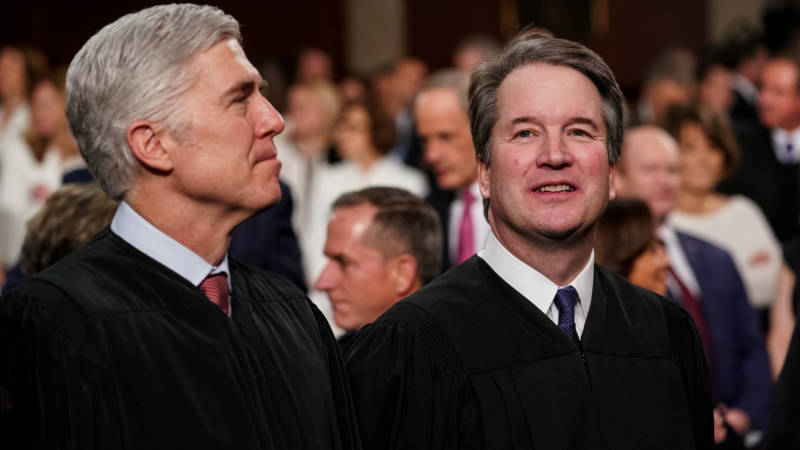Rather than allowing the four iPhone owners to sue under a "pass on" theory, Gorsuch wrote, the high court should have ruled that the rightful suit can only come from those who are forced to pay "overcharges" in a monopoly environment — in this case, the companies that develop and sell apps in Apple's online store.
"If the proximate cause line is no longer to be drawn at the first injured party, how far down the causal chain can a plaintiff be and still recoup damages?" Gorsuch asked, in his dissenting opinion that was joined by Roberts, along with Thomas and Alito.
Today's ruling, Gorsuch said, could begin whittling away the decision in Illinois Brick and may also call other, older cases into question.
But Kavanaugh wrote that the previous decision wasn't meant "to bar direct-purchaser suits against monopolistic retailers who employ commissions rather than markups."
He added, "The plaintiffs seek to hold retailers to account if the retailers engage in unlawful anticompetitive conduct that harms consumers who purchase from those retailers. That is why we have antitrust law."
To the question of whether Apple could now be subject to lawsuits from different plaintiffs — by consumers who are downstream in the sales process, and by suppliers who are further upstream — Kavanaugh wrote, "A retailer who is both a monopolist and a monopsonist may be liable to different classes of plaintiffs."
A monopsony, as we all recall, can occur when a company becomes the sole buyer of goods or labor, concentrating all the market power on its side.
Copyright 2019 NPR. To see more, visit https://www.npr.org.
